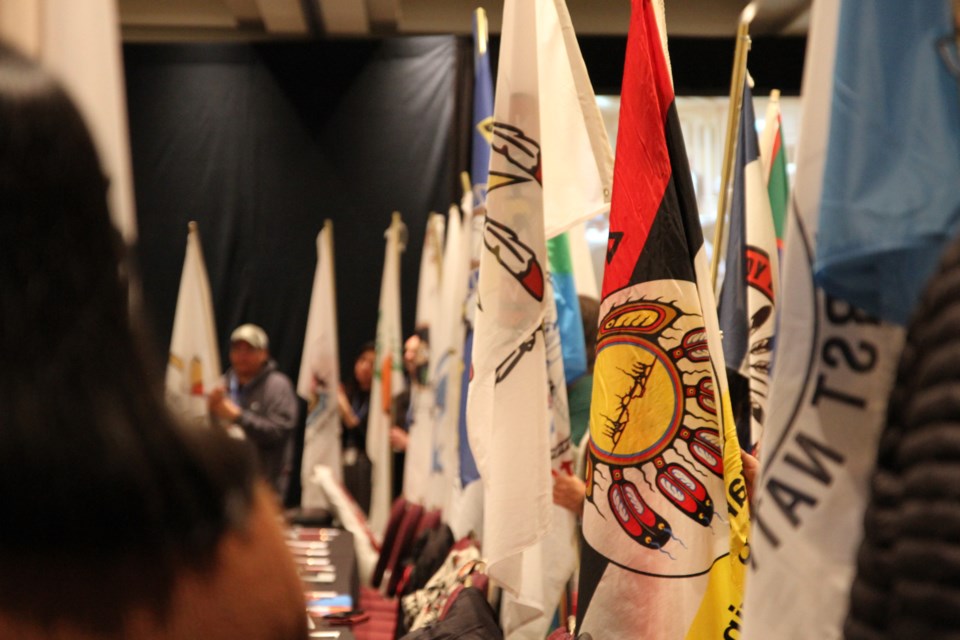THUNDER BAY — The Nishnawbe Aski Nation Chiefs Winter Assembly held earlier this week featured three days of discussions about their priorities.
Topics discussed at the Thunder Bay meeting included treaty legal cases, community wellness, policing, social services, strategic advancement, education, environment, health transformation and economic development.
Victor Linklater, Nishnawbe Aski Nation's deputy grand chief, said the economic focus involved developing partnerships through respect and the development of a sustainability centre supported by private and government funding and aimed at building capacity for First Nations.
"Whether it's forestry, an economic endeavour, mining, climate change or food sovereignty, it's almost like the First Nations need an economist," Linklater said. "It would be like an institute. We would work with partners and (academia) and put out funding requests with levels of government, proponents, private sector, or corporate, and a lot of them have truth and reconciliation as part of their mandate."
Linklater said the centre would be a place to gather data for research that's needed when it comes to undertakings such as environmental assessments or understanding the treaty land entitlement processes.
"Sometimes we need data to deal with issues on our radar like the whole nuclear waste file that's been proposed for Indigenous sites," he said. "We need the funds necessary to research and to protect our environment, not just for First Nations, but for people in this region because it's not just a First Nation issue, it's a people issue."
The centre would serve as a catalyst for studies, research, and environmental assessments, among many other data collections.
"It would also provide an opportunity to raise funds to defend our rights," Linklater said.
"We have a lot of treaty cases to protect who we are, and when it goes through a court system, we're fighting a treaty promise and a colonial court, which provides challenges. Because the process is there, cases could be prolonged, and you need funds to keep fighting because it becomes a war of attrition sometimes."
During the forum, Linklater said they put a call out for Nishnawbe Aski Nation chiefs to sit on a committee and provide technical support. He said for them, it's "foundational," and they want to see an economic summit to deal with all those issues before the end of this year.
"We'll take guidance from our chiefs or nations to see what they want to discuss," Linklater said. "We'll look at mining, forestry, climate change and the carbon credit economy,"
Linklater pointed out that there have been First Nations in their territory that have done this leg-work and have learned some tough lessons that they need to pass on to other communities along with the best practices and some of the landmines that they could avoid.
Work is also being done to find ways of helping First Nations navigate the permitting process when resource development happens.
"When developers come within a First Nation territory, we have to make sure that the government and proponents follow the free prior informed consent part, and I think that's where a lot of our First Nations get stalled," he said.
"People assume that this is what (First Nations) want, and it's not that they are opposed to development, but as rights holders and believing in their sovereignty, there needs to be respect to honour the treaty."
Some First Nations practice with impact Benefit Agreements, and Linklater says they are seeing a real shift where they want to become equity owners. Entrepreneurs are setting up their own forestry or supply companies, and they're going after procurement in the mines.
The expectation is that those "big government contracts" are going to come their way and when those agreements have been signed, construction companies will be buying heavy equipment to improve the lives of Nishnawbe Aski Nation people.
"My vision, which is common to a lot of our people, is that you've got to be child-centred and family-focused for building and rebuilding communities," Linklater said. "If we build this (centre), it will have so much opportunity. It's thinking outside the box."
The Chronicle Journal / Local Journalism Initiative
